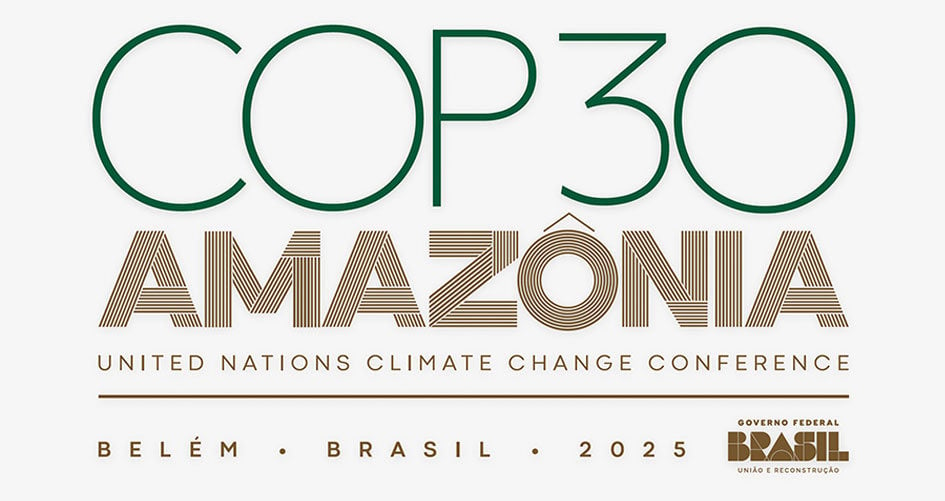Listen to the article
Climate disinformation surrounding the upcoming UN climate summit in Brazil has seen a dramatic rise, with artificial intelligence tools making false content easier to create and more difficult to detect, according to a new report released Thursday.
The Climate Action Against Disinformation (CAAD) coalition, working with the Observatory for Information Integrity (Oii), documented a staggering 267 percent increase in COP30-related disinformation between July and September, identifying more than 14,000 examples of misleading content circulating online.
One particularly concerning case involves a video purportedly showing massive flooding in Belém, the Amazonian city set to host the UN climate conference. Researchers determined the entire video was fabricated using AI. “The reporter doesn’t exist, the people don’t exist, the flood doesn’t exist, and the city doesn’t exist,” Oii stated in its findings. Despite researchers flagging this content to TikTok, the platform has not removed the video, which fails to disclose its AI-generated nature.
Several other deceptive videos have suggested Belém is unprepared to host the critical climate summit. Investigation revealed one video was actually filmed in Tbilisi, Georgia, while another recycled footage from two years ago to create a false narrative about the Brazilian city’s conditions.
These incidents represent a troubling pattern of AI-manipulated climate content that has proliferated throughout 2025. Earlier this year, AFP investigated a document falsely attributed to Elon Musk’s Grok 3 AI that attempted to undermine the credibility of climate models developed by the Intergovernmental Panel on Climate Change.
The report comes at a time when public support for climate action is actually growing. Research indicates that more than 80 percent of people globally want stronger climate policies, with 69 percent saying they would willingly contribute one percent of their monthly income to support such initiatives.
However, this widespread support remains largely unrecognized. Both United Nations Environment Assembly participants and the general public significantly underestimate this collective willingness to mobilize for climate action.
“This is the impact of climate disinformation,” CAAD explained in its report. “Big Carbon’s spending and Big Tech’s algorithms are preventing us from seeing and hearing one another online. Instead, we’re exposed to one lie after another.”
The consequences of these false narratives extend beyond public perception. Carlos Milani, a professor at Rio de Janeiro State University, noted that climate scientists and activists face intimidation as a result of coordinated disinformation campaigns. “Climate denial in Brazil is pushed most explicitly by far-right figures, a small group of anti-environmentalist activists and ultra-conservative leaders,” Milani said.
Brazil’s position as host of COP30 makes it particularly vulnerable to targeted disinformation. As one of the world’s most biodiverse nations containing the majority of the Amazon rainforest, Brazil plays a crucial role in global climate discussions. Previous deforestation policies under former president Jair Bolsonaro had drawn international criticism, and climate action advocates worry that disinformation could undermine current conservation efforts.
Governments and international organizations are beginning to respond to the challenge. The European Union’s Digital Services Act represents one attempt to increase transparency and accountability among platforms and advertisers that may inadvertently spread climate misinformation.
The United Nations has also recognized the threat, placing information integrity on its agenda for the first time. “We’re finally headed in the right direction,” CAAD said, though challenges remain in establishing effective guardrails against AI-generated disinformation.
As the COP30 summit approaches, experts warn that distinguishing fact from fiction will become increasingly difficult without concerted efforts from technology platforms, governments, and media organizations to identify and limit the spread of climate disinformation.
Fact Checker
Verify the accuracy of this article using The Disinformation Commission analysis and real-time sources.




11 Comments
The 267% increase in COP30-related disinformation is alarming. As we approach this important climate summit, it’s vital that the public has access to factual, reliable information to inform the discussions.
Concerning to see the rise in AI-generated climate disinformation ahead of COP30. We need to be vigilant about verifying the sources and accuracy of online content, especially around important events like this summit.
Absolutely. The ability of AI to create realistic but fabricated videos is a serious threat to public discourse. More transparency and fact-checking is crucial to combat this.
The AI-generated fake video about flooding in Belém is a prime example of the kind of misleading content we need to be on the lookout for. Fact-checking and transparency are essential to combat these deceptions.
This is a troubling development. Spreading misinformation through AI-generated content undermines the critical dialogue we need on climate action. Platforms must take stronger steps to identify and remove deceptive videos.
Agreed. The lack of disclosure on the TikTok video is especially concerning. We need clear labeling and policies to address the rise of AI-manipulated media.
This report highlights the growing sophistication of climate disinformation tactics. Fabricating videos to undermine confidence in the summit venue is a concerning new tactic. More needs to be done to inoculate the public against these deceptions.
Exactly. Media literacy and source verification will be key to navigating the information landscape ahead of COP30. Platforms must also step up their content moderation efforts.
The use of AI to generate fake videos is a worrying trend that undermines public trust. Rigorous fact-checking and source verification will be essential to counter the spread of this type of misinformation.
While the rise in COP30-related disinformation is alarming, I’m hopeful that greater awareness and vigilance can help limit the impact of these AI-powered deceptions. Staying informed and verifying sources will be crucial.
I share your hope. Proactive steps by platforms, fact-checkers, and the public will be needed to stay ahead of this threat and ensure an informed dialogue around the climate summit.